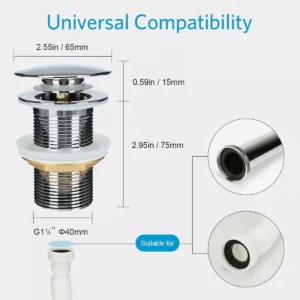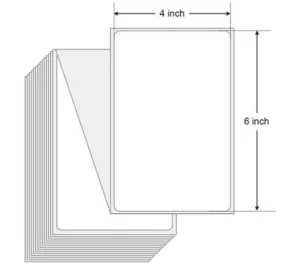Finding a reliable eBay supplier is a crucial step for any eBay seller. Whether you want to stock inventory, dropship items, or source products at wholesale prices, the right supplier can make or break your online business. First, understand eBay’s rules: eBay only allows drop shipping if you have an agreement with a wholesale supplier you own inventory from. This means you must work with legitimate wholesalers (not retail arbitrage). Once you know this, you can focus on searching for real eBay suppliers who meet your needs.
Understand eBay’s Wholesale Requirements
eBay mandates that sellers fulfill orders from inventory they own or have under contract. In other words, “dropshipping is allowed on eBay if you own the items prior to listing or have an agreement with a wholesale supplier.” You cannot simply buy from other retailers after a sale. To comply, identify eBay suppliers who will grant you retail rights or dropship from their stock. When choosing a supplier, look for those who explicitly support wholesale or dropshipping partnerships.
In addition to legality, think about quality and service. eBay advises finding an eBay supplier with “good wholesale prices, excellent reputation, and quality service”. That means you should vet candidates carefully: check their pricing structure, customer reviews, and return policies. A strong supplier will offer discounted bulk pricing (e.g. tiered pricing where you save more by buying more) and reliable product quality.
Identify Your Product Needs
Start by choosing the right products or niche. Research eBay’s best-selling categories and trends to pick goods that sell well. For example, electronics, home & garden, or fashion items often do well on eBay. Once you know what you want to sell, you can target suppliers in that niche. Suppliers often specialize by category – e.g. tech accessories, DIY tools, or office supplies. (For instance, some UK-based suppliers focus on electronics and homewares.) Make a list of the features you need: brand name, product specifications, and minimum order quantities (MOQ). Having clear criteria helps in the next step of searching.
Search Through Wholesale Directories and Marketplaces
The next step is to find potential eBay suppliers using every channel at your disposal. A multi-pronged approach works best. For example, you might:
- Browse B2B directories and wholesale marketplaces: Websites like Ardent Wholesale, Alibaba and AliExpress let you contact manufacturers and distributors worldwide. Shopify notes that “Alibaba and its partner site AliExpress… are common destinations for global retailers looking to source products from Chinese wholesalers”. These platforms are great for finding low-cost goods and exploring many product options. Similarly, DHgate and IndiaMart are popular for bulk sourcing. In fact, one guide lists AliExpress, DHgate, Alibaba, and Amazon as top sites to buy wholesale items. Each has pros and cons (see table below).
- Use dedicated supplier directories: Online directories vet and list wholesale eBay suppliers. For example, Wholesale Central is a free B2B directory with over 1,400 suppliers and 700,000 products. Similarly, platforms like Worldwide Brands or SaleHoo compile vetted supplier lists (Worldwide Brands is a long-established directory of certified wholesalers). These services often require a membership fee but save you time by pre-checking suppliers.
- Explore eBay’s own programs: eBay has a partnership with BULQ to source wholesale lots. Through BULQ®, sellers can “purchase lots through our exclusive partnership” on eBay. You buy pallets of returned or overstocked items, receive them at your door, and get pre-filled listing data for each product. This is a convenient way to expand your inventory with name-brand goods.
- Contact manufacturers and local wholesalers: Don’t overlook direct outreach. Search Google or trade directories for manufacturers or national distributors of your target products. If you find a manufacturer’s website, they often list their authorized resellers or wholesale contacts. Alternatively, check phonebooks or business directories for wholesalers, importers, and distributors in your region (e.g. TV and electronics wholesalers in the UK, or clothing distributors). You might even visit trade shows or wholesale fairs in person. Attending an industry trade show can connect you with multiple suppliers at once. In general, experts advise: “Attend trade shows, use wholesale directories like Ardent wholesale, Alibaba or ThomasNet, contact manufacturers directly, search online marketplaces, join wholesale forums, [and] ask for referrals”.
- Use industry networks and referrals: Join eBay seller forums, Facebook groups, or LinkedIn networks. Other sellers often share tips on good suppliers. You can also ask existing suppliers or mentors for referrals. A trusted referral can cut down on vetting time.
By combining these methods, you’ll uncover a list of candidate eBay suppliers. For example, if you sell in the UK, also check UK-specific networks. The Wholesaler UK is one such resource: it’s a directory aimed at UK wholesalers and dropshippers, listing UK-based suppliers for fast local shipping. (Working with a local supplier can mean quicker deliveries and easier communication.)
Vet and Evaluate Potential Suppliers
Once you have a shortlist, carefully evaluate each eBay supplier. At this stage, you want to be sure the supplier is reliable and aligns with your needs. Check the following factors:
- Product Quality: Always request samples or small trial orders. Shopify advises doing market research and getting samples to confirm quality. This avoids surprises if the bulk order turns out poor. Check item details and ask for product documentation or data feeds. A good eBay supplier can provide high-res photos and specs.
- Pricing & MOQ: Look closely at the pricing structure. Legitimate wholesalers usually offer tiered pricing (bigger orders give bigger discounts). Ensure the wholesale prices leave you room to make a profit after eBay fees. Negotiate if possible — many suppliers will discount further for larger or repeat orders. Also note any minimum order quantities (some suppliers sell dropshippers single units, others require bulk). Make sure the MOQ works for your budget. Shopify notes a 10% discount per extra volume is common.
- Reputation & Reviews: Research the eBay supplier’s credibility. For online suppliers, look at feedback on B2B platforms or ask for references. All suppliers are “pre-vetted” before being listed in directories such as Worldwide Brands. Check industry forums and communities for any red flags (unreliable shipping, scams, etc.). eBay’s drop shipping FAQ also recommends checking a supplier’s “excellent reputation” before partnering.
- Shipping Speed and Reliability: Fast delivery matters on eBay. Ask suppliers about typical processing time and carriers they use. Shopify suggests asking if they offer rush shipping options and how long a delivery usually takes. Consider if they have warehouses in your target market (e.g., the Wholesaler UK sources mainly UK stock for faster UK deliveries). Remember that eBay requires items to reach buyers within specified times, so reliable shipping is non-negotiable.
- Customer Service & Communication: Good communication is key. If a supplier is slow to answer questions or provide information, that’s a warning sign. Look for dedicated support channels (trade accounts or account managers are a plus). Some suppliers even assign personal account managers to help resellers. Fast, clear communication from a supplier means smoother operations for you. Shopify stresses choosing suppliers with a “track record of solving problems quickly.”
- Policies & Terms: Understand the supplier’s return, warranty, and branding policies. Dropshippers should ensure the supplier’s terms align with their own customer service. For example, eBay sellers must not violate any eBay policy (no retailer branding in packaging, etc.). A supplier that allows relabeling or offers drop shipping under your brand (as some do) can be an advantage, but only if it doesn’t break eBay rules. Please ensure all details are clarified in advance (returns, refunds, damaged goods) to prevent any unexpected issues.
Once you shortlist an eBay supplier, treat it as a partnership. Meet or video conference if possible. Negotiate terms like bulk discounts or exclusivity. Please ensure you have well-defined contact points. A handshake image like the one above illustrates the trust and cooperation needed in these relationships. Building a strong rapport can lead to better service: for example, a supplier might prioritize your orders or give you advance notice of stock shortages. In short, don’t just buy and never talk – maintain communication and feedback loops.
Benefits of Using Wholesale Suppliers
Partnering with a good wholesale eBay supplier offers many advantages:
- Better Profit Margins: Wholesale pricing is much lower than retail. Buying in bulk or through dropshipping agreements lets you resell at a healthy markup. For example, approved wholesalers typically price items at 60-70% off retail, giving sellers better margins.
- Consistent Inventory: Wholesalers usually have large stockpiles. This means you can source consistent quantities of a product over time, keeping your eBay listings stocked. You avoid “stock-out” situations common when buying consumer quantities from retailers.
- Wide Product Range: Many wholesalers carry diverse product lines. You can expand your store’s catalog by adding related items from the same supplier. For instance, a tech wholesaler might offer everything from phone cases to headphones, letting you cross-sell to customers.
- Time Savings: Some wholesalers offer services tailored to online sellers: for example, BULQ’s system generates eBay listing drafts automatically. Others provide inventory feeds or CSV files so you can upload many products quickly. This automation reduces manual work.
- Compliance and Legitimacy: Wholesale distributors often provide genuine products with brand authenticity. This reduces the risk of counterfeit issues. Plus, using recognized suppliers keeps you compliant with eBay’s strict sourcing rules.
- Support and Guarantees: Because wholesalers deal in bulk, they usually have clear return and warranty policies for defective goods. They might also offer training materials or product knowledge that helps you describe items accurately (improving your listings).
- Business Growth: Wholesalers like Ardent (for example) focus on servicing resellers’ needs with trade-friendly terms. Working closely with such suppliers can lead to preferential treatment (like first access to new products) that keeps your eBay store competitive.
Key eBay Suppliers Comparison
| Supplier Channel | Advantages | Drawbacks |
| Manufacturer / Brand Direct | Lowest costs, custom branding possible. High reliability of authenticity. | – Often very high MOQ. – May require long-term contracts. – Language/cultural hurdles if overseas. |
| Wholesale Marketplaces (e.g., Alibaba, DHGate) | Huge product selection, low prices. Flexible order sizes (esp. AliExpress). | – Long shipping times from Asia. – Quality varies, need vetting. – Import duties/trade compliance needed. |
| Wholesale Directories (SaleHoo, Worldwide Brands) | Vetted supplier lists. Many product categories. | – Membership fees. – Still need outreach and vetting. – Not an automatic fulfillment service. |
| Local/National Wholesalers (Ardent Wholesale) | Fast domestic shipping. Easier communication (same time zone/language). | – Smaller product range. – Possibly higher prices than overseas. – May require in-person visits. |
| Dropshipping Platforms (DSers, Spocket, etc.) | No inventory to stock. Auto-synced to your store. Low startup cost. | – Monthly or per-order fees. – Dependence on platform stability. – Less branding control. |
| eBay BULQ (Lots) | Curated liquidation lots. Prefilled listing templates. No bidding needed. | – Items often used/open-box; not always brand new. – Limited to what BULQ offers. – No choice of exact products in a lot. |
This table compares common sourcing methods. Each seller must weigh factors like cost, speed, and risk. For example, Alibaba gives great prices but requires patience with shipping, while a local UK eBay wholesaler gets stock to your door quickly.
Evaluate and Negotiate
Before committing, negotiate terms. Once you pick a eBay supplier, discuss discounts for larger orders or better payment terms. Ensure return/warranty policies are acceptable. Keep most communication in writing (email or chat) to have records. Some sellers even test a small order or dropship a few units first. Shopify’s guide suggests “vet [suppliers] by checking each supplier’s…rating, reviews, delivery times, and fees. Consider ordering samples to check product quality and shipping practices”.
Keep in mind eBay’s performance standards: late shipments or poor packaging reflect on you as the seller. Always prioritize eBay suppliers who help you meet those standards. For example, if eBay requires delivery within 30 days, make sure your supplier can dispatch quickly. If a supplier seems slow or evasive, it’s usually a bad sign. On the other hand, a responsive, transparent supplier who even provides tracking updates or stock alerts is a strong partner.
Building Supplier Relationships
Once the deal is set, treat the relationship professionally. Inform your eBay supplier of your eBay sales performance and feedback. eBay Suppliers value consistent buyers and may give you early notice on new products or clearance stock. Promptly relay any customer issues (damages, returns) to the eBay supplier so they can learn and improve. Over time, you can build trust, which may lead to perks like exclusive product lines or co-branded packaging.
Good record-keeping helps both sides. Keep track of orders, communications, and any agreed terms. If problems occur (e.g. shipment delay or missing items), handle them calmly and expect your supplier to do the same. As one eBay guide emphasizes, customer service is vital: “Make customer service your priority. Answer buyers’ requests quickly… keep active communication with your eBay supplier.” In practice, this means passing on any inventory issues to the eBay supplier immediately and updating your listings if a product changes.
The above image shows a wholesale shipment in stock. As you can see, a good eBay supplier can provide full pallets or crates of goods ready for your store. Having such inventory lets you list products continuously without worrying about stockouts. (Always ensure products match your eBay descriptions and photos.)
Tips for Ongoing Success
- Diversify Suppliers: Don’t rely on a single supplier for your entire inventory. Even the best eBay suppliers can run into stock issues. Cultivate at least 2–3 sources for your main products.
- Stay Informed: Keep up with market prices. If one supplier’s price spikes, you can quickly switch to a cheaper option. Also stay aware of eBay policies, as rules can change.
- Use Technology: Many sellers use inventory and order management tools (like EPROLO or Shopify apps) to sync supplier inventory with their eBay listings. Automation can save time and prevent overselling.
- Track Performance: Monitor each supplier’s reliability. Track metrics like on-time delivery rate and defect rate. If a supplier falls below your standards, start searching for alternatives early.
- Leverage Seasonal Trends: Suppliers often have seasonal catalogues or sales. Plan ahead (Black Friday, Christmas, back-to-school, etc.) and ask suppliers to reserve stock or notify you of upcoming deals.
Conclusion
In summary, to find a top-notch eBay supplier, combine careful research with strategic vetting. Use resources like trade shows, online B2B directories, and eBay’s own BULQ program to discover candidates. Evaluate them on price, quality, and reliability (Shopify recommends sample orders and checking reviews). Remember eBay’s rules: only dropship via legitimate wholesale partners. Cultivate supplier relationships with clear communication and fair negotiation.
By doing thorough due diligence and building strong partnerships, you’ll ensure a steady flow of products and good profit margins. Whether you source through Ardent Wholesale, Alibaba or a local UK wholesaler, the right eBay supplier will help your store thrive. With solid eBay suppliers behind you, you can focus on optimizing your listings and serving customers – confident that your inventory is in trusted hands.


